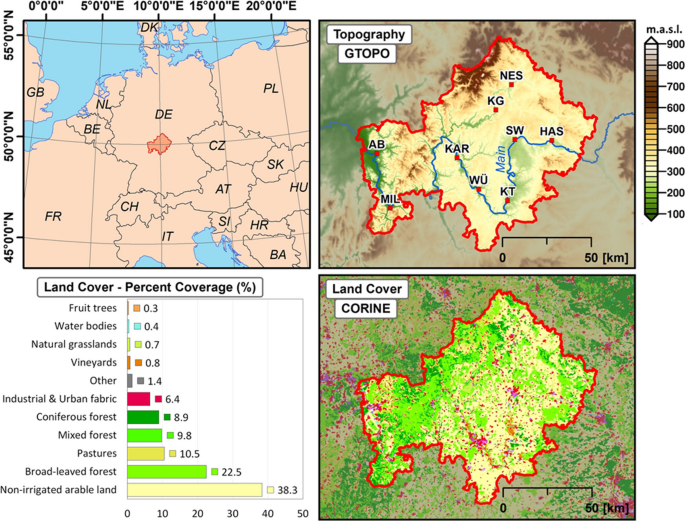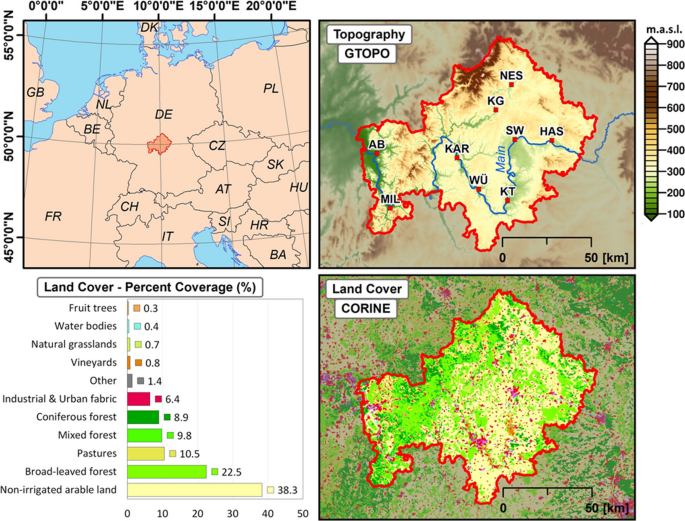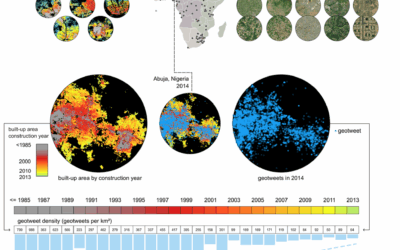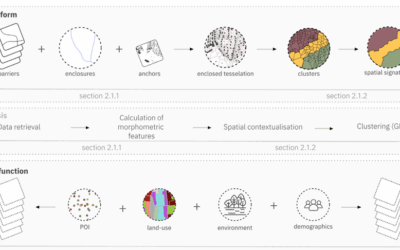The Earth Observation Research Cluster (EORC) contributed to a new publication on climate change in Lower Franconia: “Climate change information tailored to the agricultural sector in Central Europe, exemplified on the region of Lower Franconia” (Springer-Journal “Climate Change”)
From the abstract: There is a growing societal, economic, and political demand to translate available data on regional climate change into sector-specific, practice-oriented, and user-friendly information. The study presents a demand-driven approach to specify the impacts of regional climate change on agriculture, viticulture, and fruit and vegetable growing in Lower Franconia, southern Germany, a region with heterogeneous topography, diversified land use patterns, and intense activities in the sectors specified above. The approach is based on an ensemble of high-resolution regional climate model projections, a bias correction tool, and a large spectrum of meteorological (extreme) indicators that are crucial to the agricultural sector in Central Europe, as inferred from a stakeholder survey. For several decades, Lower Franconia represents a hotspot region of climate change with enhanced heat waves, prolonged droughts, and intermittent local flooding by heavy rainfall events. Results of the high-resolution regional climate model projections indicate an increase of hot days and tropical nights by a factor of 5 and 12, respectively, if greenhouse gas emissions continue to grow until 2100 according to the RCP8.5 emission scenario. At the same time, droughts will occur more frequently and last longer while rainfall intensity enhances. A longer growing period starting more than 40 days earlier (compared to the reference period 1970 to 1999) implies a higher risk of late frost damage for crops, fruits, grapes, and even some tree species. In contrast, the thermal prerequisites for viticulture will be satisfied across the entire region, even at higher-elevation sites. These facets of regional climate change are made accessible to users and the public via an interactive field-resolving web portal. Altogether, they gravely challenge the historically developed land use systems in Lower Franconia and require timely adaptation and mitigation strategies.

Full paper (open access): https://link.springer.com/article/10.1007/s10584-023-03613-1








